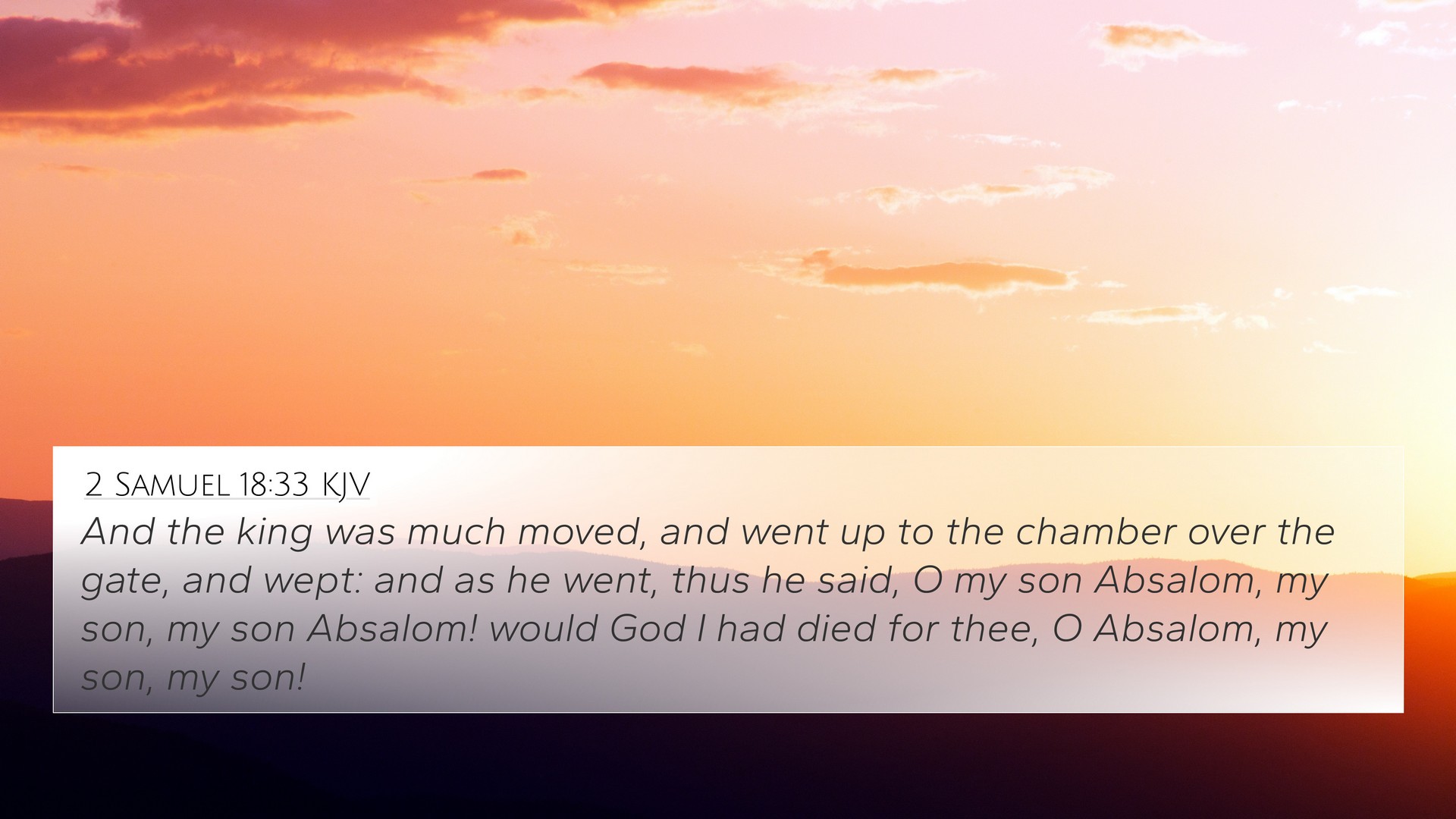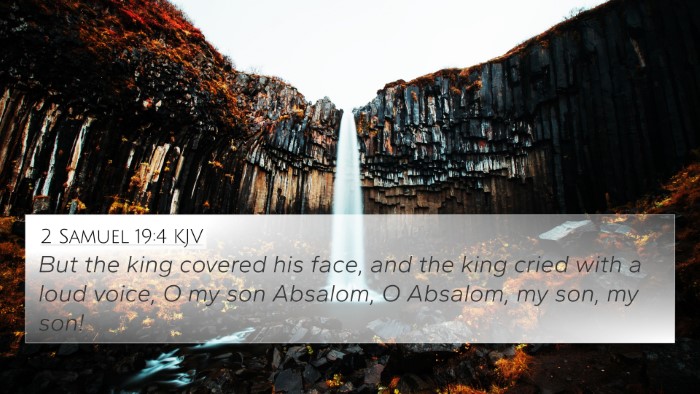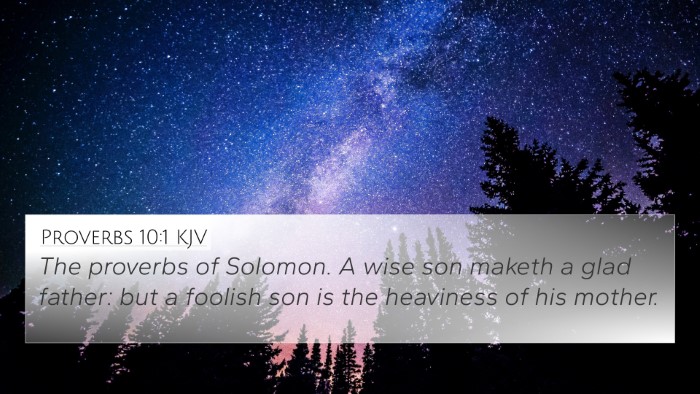Understanding 2 Samuel 18:33
Verse: 2 Samuel 18:33 - "And the king was much moved, and went up to the chamber over the gate, and wept: and as he went, thus he said, O my son Absalom, my son, my son Absalom! would God I had died for thee, O Absalom, my son, my son!"
Summary of Meaning
This poignant verse captures a moment of profound sorrow experienced by King David following the death of his son Absalom. It highlights themes of parental love, grief, and the tragic consequences of rebellion and conflict.
Commentary Insights
-
Matthew Henry:
Henry emphasizes the depth of David's grief, suggesting that his emotional turmoil reflects the weight of his paternal love and the devastation of losing a child to conflict. He notes that David grieves not just for Absalom's death, but for the lost relationship and the rebellion that led to this tragedy.
-
Albert Barnes:
Barnes points out that David's lamentation signifies not only personal sorrow but also an acknowledgment of the implications of Absalom's actions. He interprets David's repetition of "my son" as an expression of despair over the futility of their strained relationship and the devastating impact of Absalom's rebellion against him.
-
Adam Clarke:
Clarke elaborates on the emotional intensity of the verse, suggesting that the chamber David retreated to symbolizes a place of solitude where he can fully express his grief. He notes the repetitive phrases highlight the overwhelming nature of a parent’s love, even in the face of betrayal.
Thematic Connections
This verse resonates with various themes found throughout scripture, including:
- Parental Love: The depth of a parent's love, particularly in the face of loss.
- Grief and Mourning: The universal experience of mourning those we love.
- Rebellion and Consequence: The tragic outcomes of rebellion against authority.
Bible Verse Cross-References
- John 11:35: "Jesus wept." - This short verse encapsulates deep emotion and sorrow, mirroring David's lament.
- Luke 19:41: "And when he was come near, he beheld the city, and wept over it." - Reflects the grief of a leader over his people.
- Psalm 55:4-5: "My heart is sore pained within me: and the terrors of death are fallen upon me." - Illustrates a deep pain that can resonate with David's lamentation.
- Proverbs 17:25: "A foolish son is a grief to his father." - Echoes the sorrow stemming from a child’s folly.
- Genesis 37:34-35: Jacob mourning for Joseph captures a similar parental despair.
- Jeremiah 9:1: "Oh, that my head were waters, and mine eyes a fountain of tears..." - The lament of a prophet reflects deep emotional turmoil.
- Matthew 5:4: "Blessed are they that mourn: for they shall be comforted." - Connects the theme of mourning with future hope.
How to use Bible cross-references
In studying 2 Samuel 18:33, one can utilize tools for Bible cross-referencing to expand understanding of the emotional and spiritual dimensions of the texts. A good Bible concordance can help identify related passages that explore similar themes or contexts.
Using Cross-References for Further Study
To gain a deeper appreciation of David's grief over Absalom, one may explore cross-references for a comparative Bible verse analysis, linking similar themes of lamentation and parental love found in both the Old and New Testaments.
Conclusion
The sorrow expressed by King David in 2 Samuel 18:33 serves as a powerful reminder of the heartache that accompanies familial strife and loss. By examining this verse alongside related scriptures, one can gain a fuller understanding of the biblical narrative surrounding love, grief, and the consequences of human actions.
Getting More Insights with Cross-Referencing Bible Study Methods
For those eager to delve into the interconnectedness of Bible verses, employing a cross-reference Bible study method can reveal rich insights. This approach allows readers to understand how various passages inform and enhance one another, paving the way for a more comprehensive grasp of biblical themes.
Further Exploration
As you continue your journey through the scriptures, consider looking for thematic Bible verse connections to draw parallels between personal experiences and biblical narratives. Recognizing the links between different parts of the Bible enhances understanding and spiritual growth.










